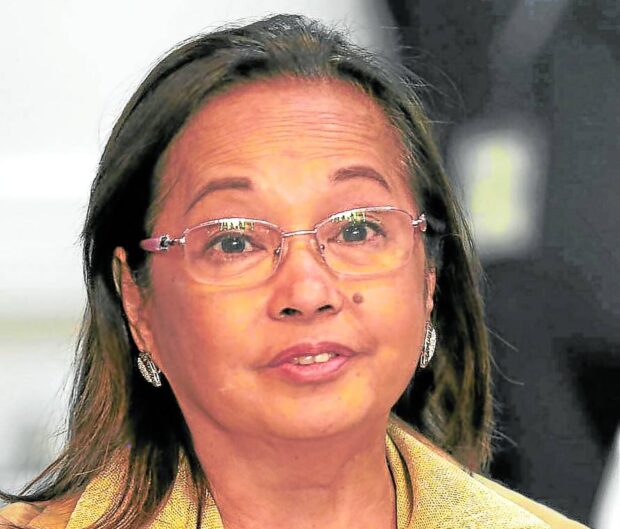Arroyo leads latest move to legalize medical cannabis
House Senior Deputy Speaker Gloria Macapagal-Arroyo —INQUIRER FILE PHOTO
House Senior Deputy Speaker and former President Gloria Macapagal-Arroyo has pushed anew to legalize and regulate the use of medical cannabis for patients with debilitating medical illnesses.
House Bill No. 7817, or the “Philippine Compassionate Medical Cannabis Act,” noted that “thousands of patients suffering from serious and debilitating diseases will benefit from legalizing the medical use of cannabis.”
As House Speaker in the 17th Congress, Arroyo supported and coauthored then House Bill No. 6517 on the compassionate and right to access to medical marijuana.
The lower chamber passed the measure on final reading in January 2019, but this was not enacted into law.
In the explanatory note to HB 7817, Arroyo said the measure “should not be deemed in any manner to advocate, authorize, promote or legally or socially accept the use of cannabis or marijuana for any nonmedical use.”
“For this reason, it provides for control measures and regulation on the medical use of cannabis to ensure patient safety and for the effective and efficient implementation of this act,” she said.
In 2019, Arroyo vouched for the effectiveness of medical cannabis and said she uses a pain patch for the chronic pain in her cervical spine whenever she is in a country that allows it.
HB 7817 proposed that the use of medical cannabis be allowed for patients with debilitating medical conditions like cancer, glaucoma, multiple sclerosis, damage to the nervous system of the spinal cord, epilepsy, human immunodeficiency virus or acquired immune deficiency syndrome;
Post-traumatic stress disorder, rheumatoid arthritis or similar chronic autoimmune inflammatory disorders, diseases requiring admission into hospice care and other debilitating medical condition that may be identified by the Department of Health (DOH) through a Medical Cannabis Advisory Committee.
A physician should be registered with the DOH and licensed with the Philippine Drug Enforcement Agency (PDEA) to prescribe dangerous drugs before being considered competent to certify a patient’s medical need to use cannabis for treatment.
The physician should have an established bona fide relationship with the patient.
Similarly, a patient’s caregiver should be a registered nurse licensed by the PDEA to administer medical cannabis.
As the principal regulatory agency for the access and use of medical cannabis, the DOH will be tasked to register and issue licenses to qualified entities engaged in the use of medical cannabis, establish a prescription monitoring system and maintain an electronic database of registered medical cannabis patients, physicians, caregivers and other qualified entities.
g/
Read Next
Don’t miss out on the latest news and information. 
Subscribe to INQUIRER PLUS to get access to The Philippine Daily Inquirer & other 70+ titles, share up to 5 gadgets, listen to the news, download as early as 4am & share articles on social media. Call 896 6000.
For feedback, complaints, or inquiries, contact us.
No Byline Policy
Editorial Guidelines
Corrections Policy
Source

